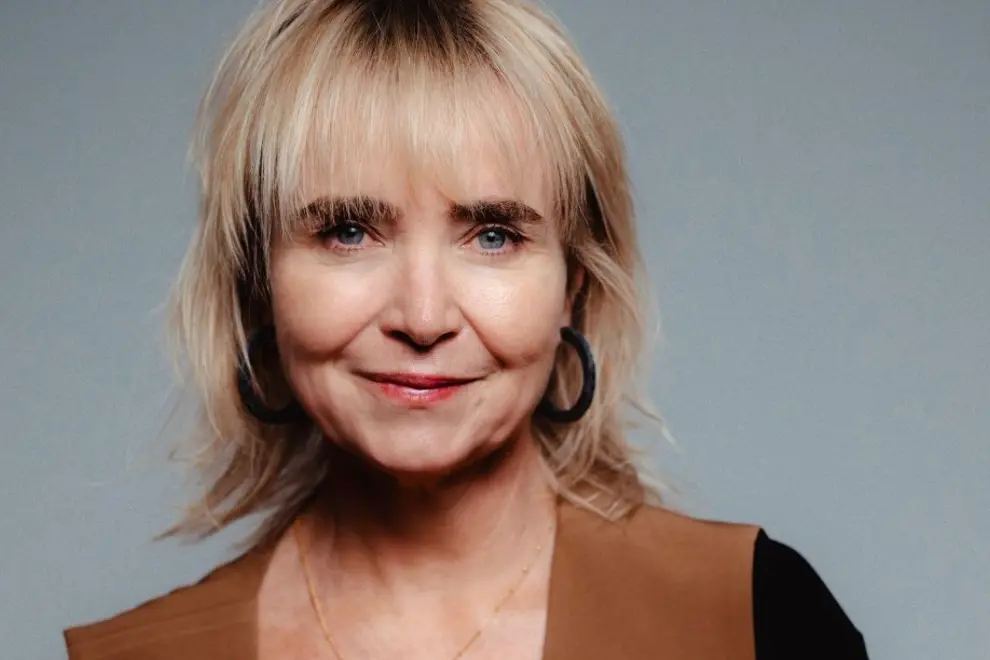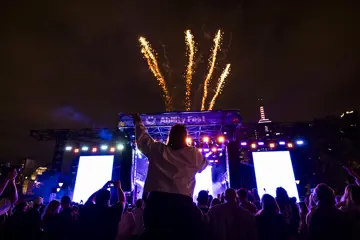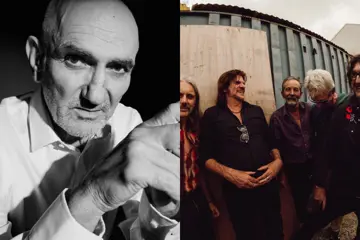Over the past fortnight, Melbourne has been buzzing with talk about music. It has been a reminder of something many of us know instinctively: live music isn’t just entertainment in this city — it’s part of who we are.
Massive international acts Oasis, ACDC and Metallica brought hundreds of thousands into Melbourne, delivering extraordinary cultural energy and economic benefit as well as taking the headlines. More than 50,000 people filled AAMI Park to see Diljit Dosanjh, the first South Asian artist to headline an Australian stadium show. Rüfüs Du Sol powered Rod Laver Arena. Sam Fender packed out the Bowl. Crowds poured into the city across multiple nights, fuelling jobs, hospitality spending and economic activity across bars, venues, and late-night businesses.
And while global heavyweights filled arenas, Victorian artists dominated the nation’s top prizes. Victoria took home more ARIAs this week than any other state — with Amyl and the Sniffers, Dom Dolla, The Teskey Brothers, Missy Higgins, Thornhill and Troye Sivan leading the charge. This success is not accidental; it comes from decades of local investment, rehearsal rooms, committed venue operators, strong communities, and tiny stages where artists were given a chance.
Because Melbourne’s musical heartbeat isn’t just in stadiums and festival grounds. Paul Kelly played an intimate show at The Corner. The Meanies packed out The Tote. Crowded House returned to The Palais. Liz Stringer toured regional venues. The Forum hosted three sold-out nights with Rob Thomas. The Croxton Block Party celebrated its tenth birthday. Meanwhile, hundreds of small rooms across Melbourne and regional Victoria hosted gigs of all types. As they do every single week of the year.
This is the Melbourne we love. This is the Melbourne we so painfully lost during the pandemic. And this is the Melbourne that is now under threat.
Don't miss a beat with our FREE daily newsletter
While large-scale events break records, things look very different further down the ladder. Small and mid-sized venues, the spaces that launched almost every major artist we celebrate, are under increasing pressure. Rising costs, regulatory complexity, lower bar takings, high insurance premiums and tighter margins are making it harder and riskier to keep doors open. Audiences are drinking less alcohol (a positive social trend), but this means the traditional music-venue business model is becoming less sustainable.
Artists are doing it tough too. Fewer funding opportunities, the rising cost of gear, rehearsal spaces, fuel, rent, touring, recording, everything has gone up. Many artists now work multiple jobs just to sustain their creative practice, and financial pressure shapes what is possible and what never gets made. When artists struggle to survive, the entire sector feels it.
At a time when the industry needs support, the State Government’s core investment program in Victorian music, MusicWorks, was removed in the last State Budget, leaving a critical gap in artist and industry development.
This is why the music pipeline matters. Big music grows from small places. Every stadium show begins in a pub or community venue where an artist can experiment, fail, learn, build confidence and connect with an audience. If the grassroots end of the pipeline weakens, the whole ecosystem suffers. Fewer artists break through. Fewer crews learn their craft. Fewer albums are recorded. Fewer cultural exports make it onto the world stage. The ARIA wins, international tours and global charting moments that make Victorians proud begin to disappear.
Then came a moment that could only happen in Melbourne.
When Amyl and the Sniffers were forced to cancel their Federation Square show, thousands of fans were suddenly left with nowhere to go. Instead of heading home, they streamed into the venues that shaped the band’s early years. In a spontaneous gesture that captured the spirit of this city, the band shouted bar tabs across seven beloved venues: The Tote, Last Chance, Cherry Bar, Old Bar, The Curtin, Labour in Vain and Hell’s Kitchen. Not long ago, they were playing to tiny crowds in those rooms. They never forgot where they came from.
A cancelled gig became a celebration of loyalty…to local artists, local venues and the communities that nurture them. It also brought Melbourne’s music ecosystem into stark relief. According to the most recent census, Melbourne has more live music venues per capita than any other city in Australia and many say the world. That’s not just a statistic; it’s who we are.
But it’s not guaranteed. We have already lost 20% of our venues since the pandemic. If we want weeks like this to be our norm, not a memory we look back on, we must strengthen the foundations of the sector now. That means supporting artists, venues, crews and the organisations that hold the ecosystem together. And that requires more than goodwill.
Melbourne’s arena events generate enormous economic benefit. But very little of the money from those shows flows back to the grassroots music ecosystem that makes them possible. If we’re serious about a sustainable future for Victorian music, that has to change.
A modest Victorian ticket levy on major arena shows and government-owned venues is a fair, practical and future-focused solution. It ensures that when international artists sell out stadiums, a small portion of that success is reinvested into grassroots music…into the venues, artists, technicians, producers, hospitality staff and thousands of workers who keep the pipeline alive. It’s not a penalty. It’s a reinvestment strategy that reduces reliance on unpredictable government funding. It is a way for the sector to give back to the sector.
Other countries are already moving this way. France, England, Germany and Wales have proposed or introduced levy models to preserve and grow their music sectors. Victoria should be leading, not watching from behind.
And Victorians can play a part too. Keep showing up. Buy tickets. Buy merch. Visit local venues. Support artists on the way up, not just at the top.
It’s a long way to the top if you want to rock’n’roll…. and a levy will help more Victorians get there.
















